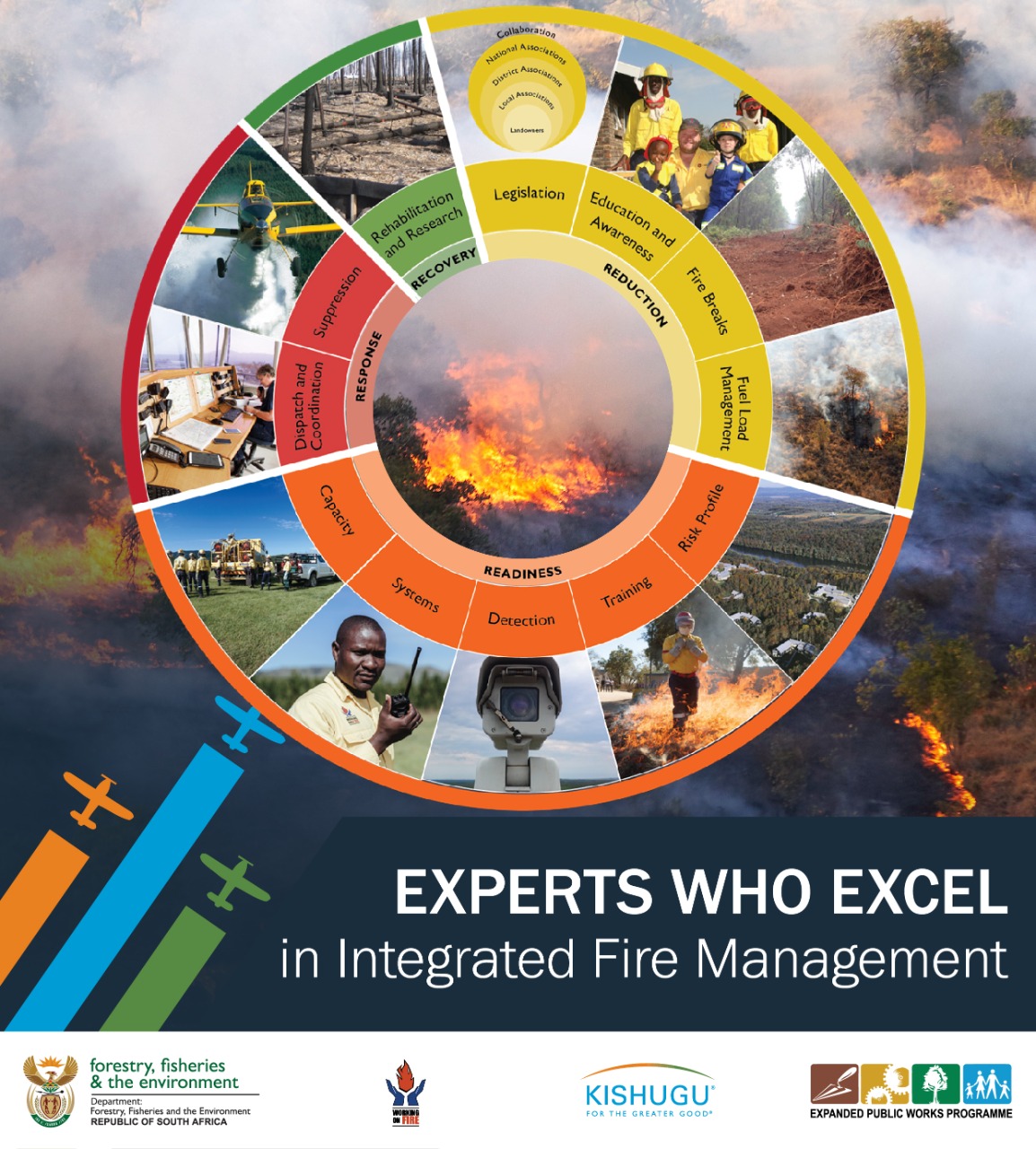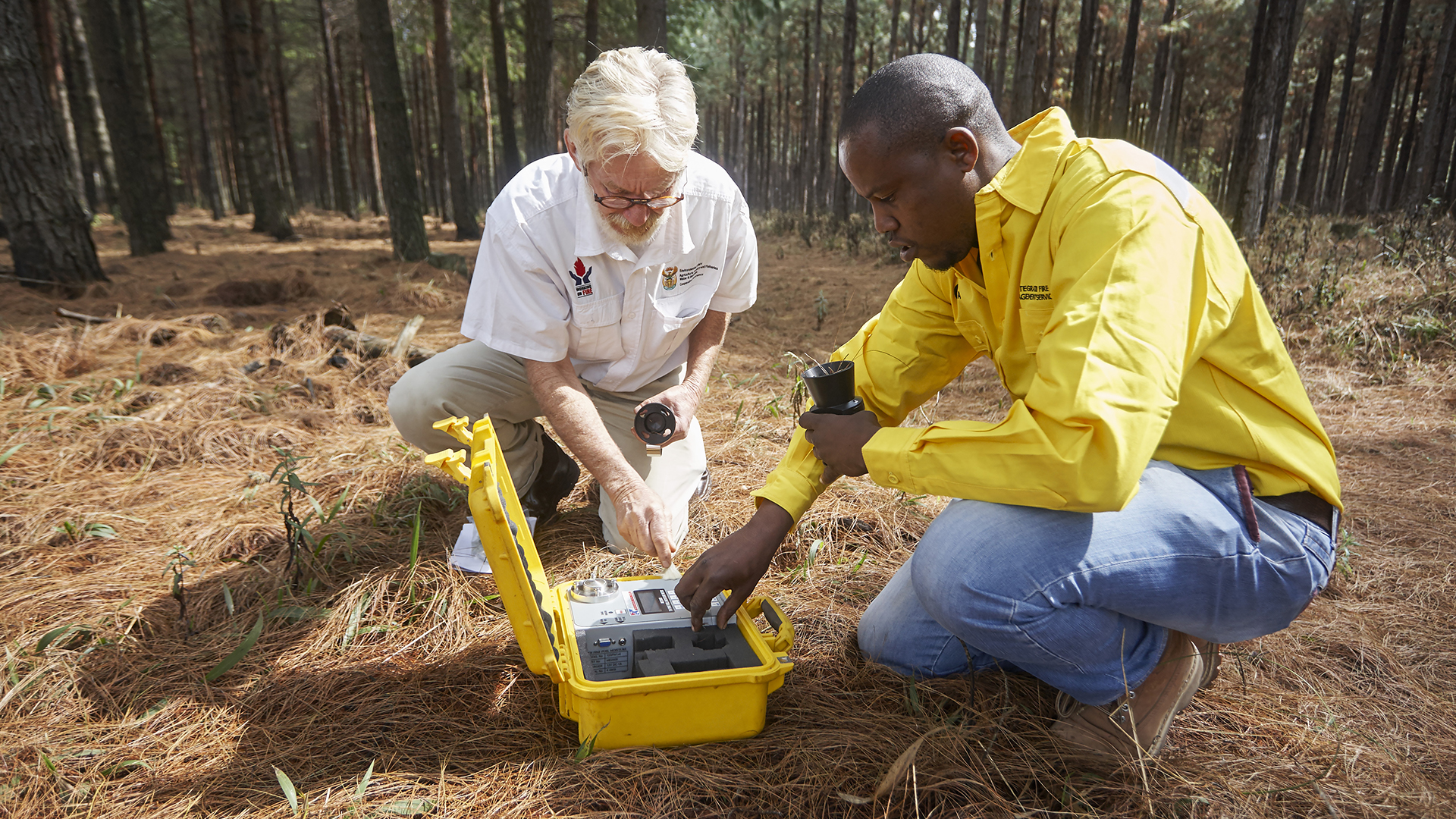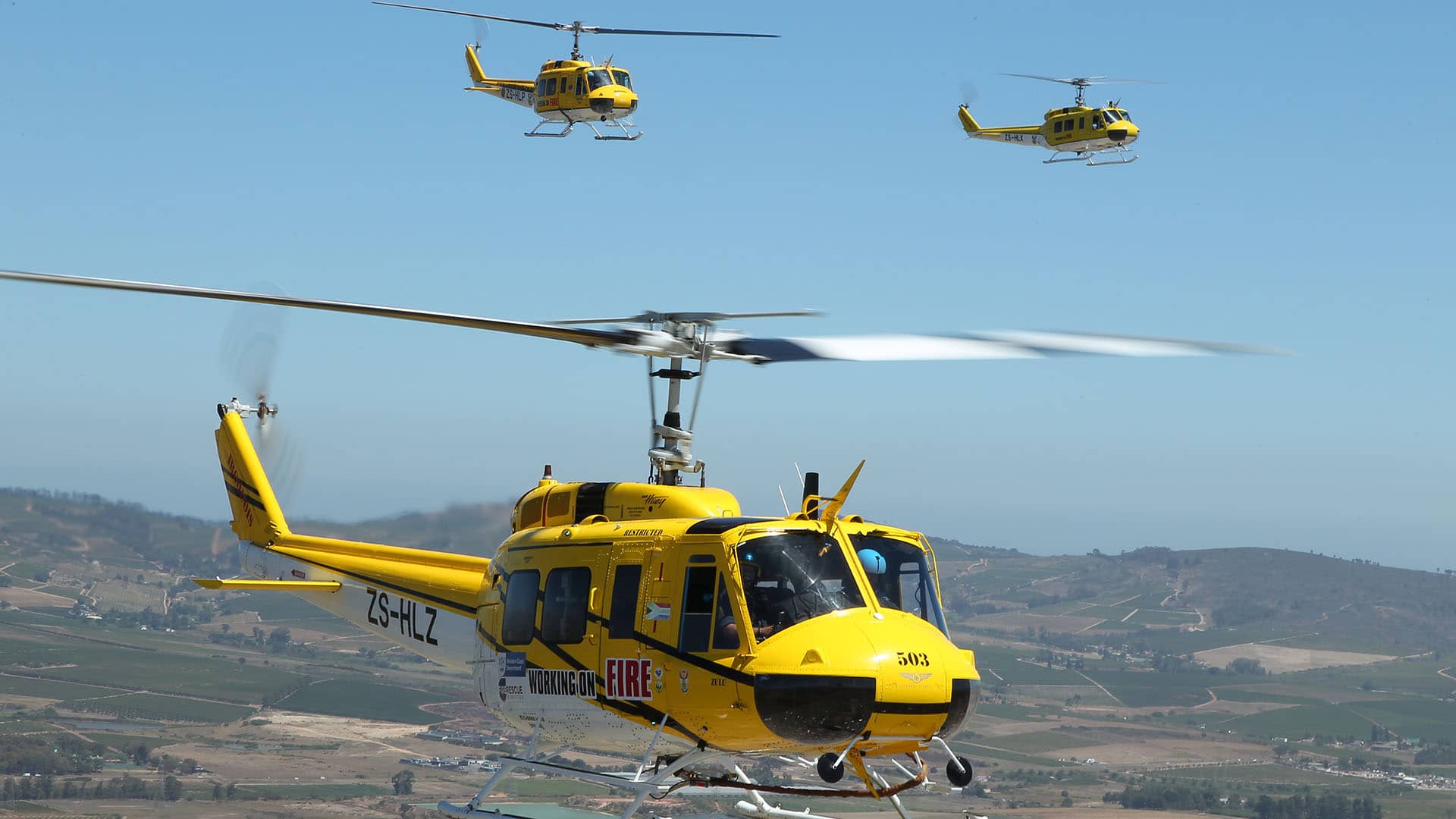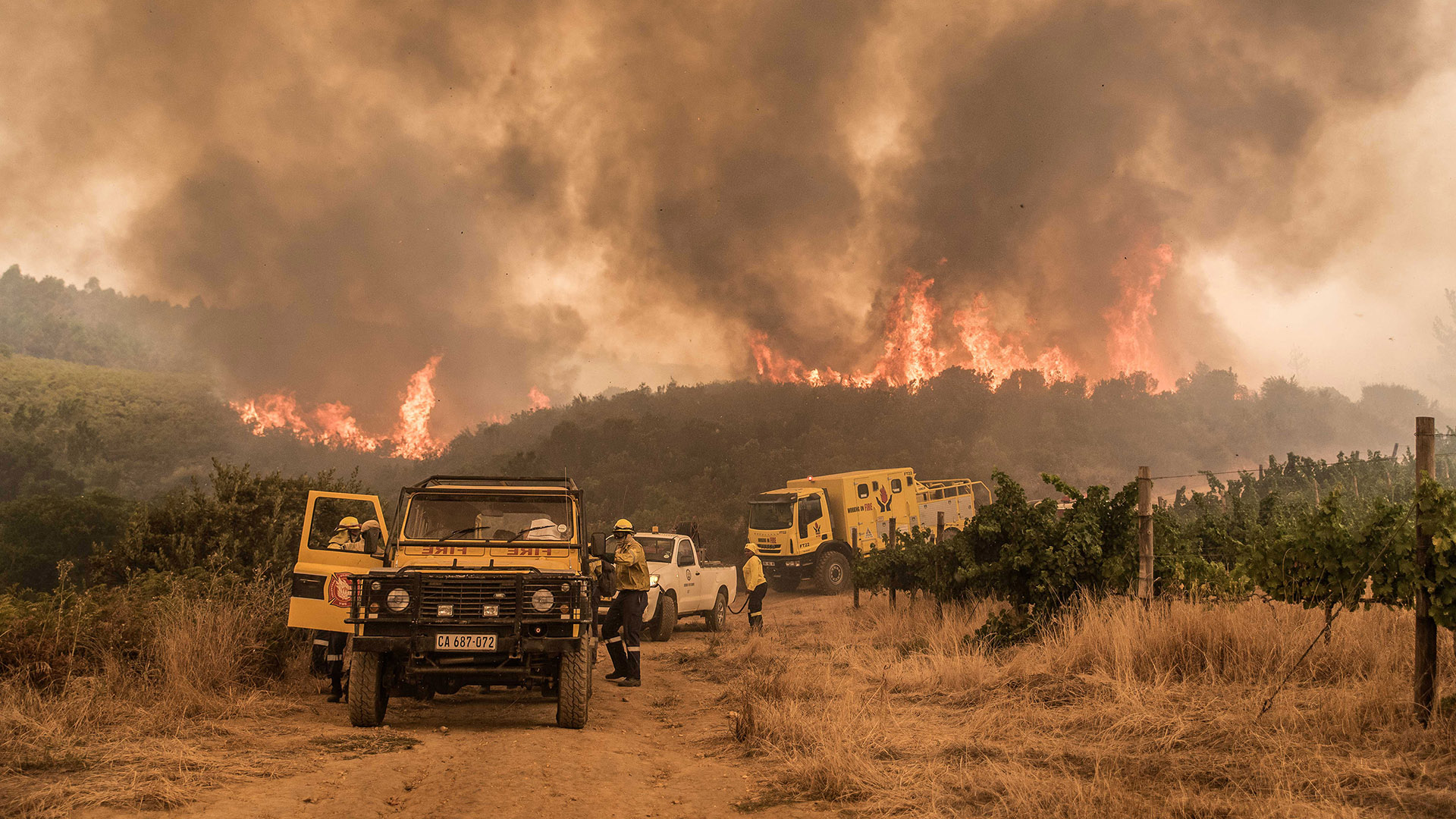“Climate and environmental changes are causing a global increase in wildfires, of which some have the propensity to become large scale disasters,” says Managing Director of the Working on Fire Programme, Trevor Abrahams. He explains that researchers at the University of Alberta in Canada highlighted that eight of the worst wildfire weather years on record happened in the last decade, and that it will only get worse. “The challenge of large wildland fires is likely to grow, and as such, aerial firefighting will become an important part of our armoury in combating this challenge,” says Abrahams.
The threat of unwanted wildfires needs to be actively and adequately managed. According to Abrahams, wildfire management is a science, and therefore, Kishugu, has done extensive work in protecting, preventing and suppressing wildfires, based on applied research on all aspects of wildfire. Along with this, Kishugu, which is the implementing agent for the award winning Working on Fire programme for the past 18 years, has sufficient knowledge and expertise to effectively fight fires through a concept it has developed, namely Integrated Fire Management (IFM).
IFM is used globally in fire-prone countries to successfully and efficiently fight wildfires. According to Emile Grobbelaar, CEO of Kishugu Aviation, the key to IFM consists of 5 R’s: Readiness, Reduction, Response, Recovery and Research
“80% of the focus is placed on the proactive sections, reduction and readiness. It is essential to take preventative measures to counter the start and spread of fires. Readiness speaks to establishing systems and acquiring resources and capacity to mitigate the effects of fire and effectively respond to unwanted wildfires that might occur.”
“IFM incorporates different fire management activities, such as aircraft, vehicles, pilots, firefighters, incident management teams equipment and tools, in a strategic framework to reduce the overall impact of unwanted wildfire damage. It also promotes the beneficial use of fire as part of Reduction,” explains Grobbelaar. “These services are managed through four subsidiaries, namely, Kishugu Aviation, Kishugu Training, Kishugu Fleet Solution and Working on Fire.”
“This leaves 20% for reactive fire suppression, that is, response. This includes coordinated action which brings the right resources, with accurate information, to an unwanted fire without delay. Rapid Initial Attacks from our aerial crews are of utmost importance.”
Rehabilitation, or recovery, means that actions are put in place, together with research and investigations after a fire incident, to prevent a similar occurrence. We learn from our research, which, in return, influences our future approaches to wildfires.”
“Kishugu provides all aspects of IFM services to all affected sectors. These include government, environmental and military agencies, forestry and agricultural companies to land users, NGO’s, national and multinational development agencies, industry associations and Fire Protection Associations (FPA’s).
If the shift to proactive planning isn’t done in a structured, collaborative way across the landscape, it won’t be effective and will quickly be reactive again. Maintaining an 80% proactive focus takes planning, collaboration and dedication with all our partners in the provinces. Fires don’t respect cadastral boundaries, and IFM shouldn’t either,” Emile said.
“We have a history of global leadership in IFM which is maintained through innovation and investing in people. Our belief in high environmental and ethical standards is reflected in our core values of adaptability, teamwork, excellence, accountability and making a difference.”
As a global leader in wildfire management, Kishugu and Working on Fire are also often called to provide wildfire management capacity and skills in other parts of the world.






